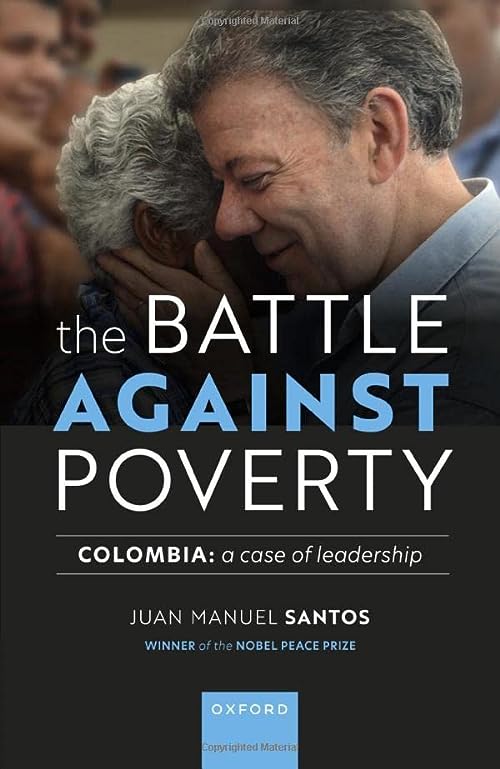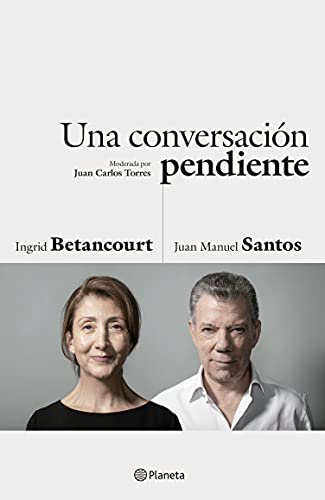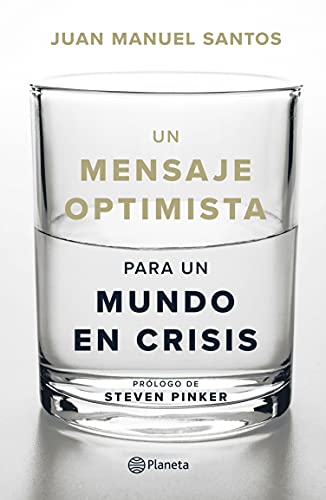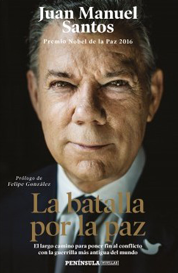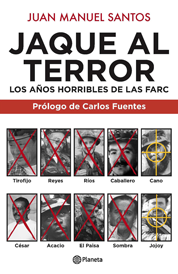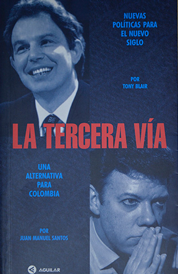Recognized as one of the most influential leaders in the world, Juan Manuel Santos was the President of Colombia, from 2010 to 2018, where he ushered in a new era of prosperity, peace, equity, and education throughout Colombia during his two-term tenure.
He was one of the initial promoters of the Sustainable Development Goals (SDGs) that became the world agenda in 2015 (he officially proposed them in the Rio+20 Summit in 2012). He also led the process to convene a special session of the General Assembly of the United Nations (UNGASS 2016) to discuss more effective ways to face the world drug problem. He was one of the founders and architects of the Pacific Alliance, the most successful economic integration process in Latin America.
He was the sole recipient of the Nobel Peace Prize in 2016 for “his resolute efforts to bring the country’s more than 50-year-long civil war to an end”, according to the Norwegian Nobel Committee. He was also awarded the Lamp of Assisi by the Catholic Church and the Tipperary International Peace Award in Ireland for his efforts to bring peace to his country and the region.
For his aggressive environmental policies to protect his country’s biodiversity and fight climate change, he was awarded the Royal Botanic Gardens Kew International Medal and the Wildlife Conservation Society Theodore Roosevelt Award for Conservation Leadership. In addition, the National Geographic Society honored him for his for unwavering commitment to conservation and Conservation International awarded him the Global Visionary Award.
His innovative and successful policies to fight poverty and inequality earned him the appointment as co-founder of the Multidimensional Poverty Peer Network (MPPN) by the Oxford Poverty and Human Development Initiative (OPHI), along with his former professor and inspirer of his policies, Economics Nobel Laureate Amartya Sen.
Before being President, he was Minister of Foreign Trade (April 1991) responsible for inserting his country in the global economy. At that time, he was also elected by Congress as the equivalent of Vice-president (Presidential Designate) of the country. He was later Minister of Finance (February 2000) in charge of lifting his country out of the worst recession Colombia had experienced in 80 years, which he did. He was also Minister of Defense (July 2006 – May 2009) where he was able to inflict the severest blows to the FARC guerrillas in their 50 years of existence and bring them to the negotiating table.
In 2005, Santos founded a new political party (The U Party). Just one year after its foundation, it obtained the largest majority in the legislative elections putting an end to one hundred and fifty-seven years of bipartisan dominance of the Congress by the Liberal and the Conservative parties.
He worked in London for nine years as the Chief of the Colombian Delegation to the International Coffee Organization. Before going into public life, he was a deputy publisher and editorial writer for eight years in the newspaper El Tiempo. He won the King of Spain Prize for Journalism for a series of chronicles that exposed the corruption of the Sandinista Revolution in Nicaragua. He has always been a staunch defender of the freedom of the press.
Santos graduated with honors from the Colombian Naval Academy in Cartagena. He holds a Business and Economics degree from the University of Kansas (1969) and did post-graduate studies in the London School of Economics (1973-1974), in the Fletcher School of Law and Diplomacy at Tufts University and in Harvard University as a Fulbright fellow, where he obtained a Master’s in Public Administration from the Kennedy School of Government (1981). He was a Nieman Fellow at Harvard (1987- 1988) and after his presidency, he was named as the Angelopoulos Global Public Leaders Fellow also at Harvard (2018-2019). He has been awarded honorary doctorate degrees in various universities, including La Sorbonne and the London School of Economics.
The World Economic Forum distinguished him as Young Global Leader and years later presented him with an exceptional Global Statesman Award in recognition of his leadership and contribution to peace.
Santos was awarded the Chatham House Prize in 2017 in recognition of his role in formally ratifying a peace agreement with the FARC rebel group and bringing an end to the armed conflict in Colombia.
He was on the cover of Time Magazine and appeared twice on the list of the 100 most influential people in the world.
He has written several books: one of them with British Prime Minister Tony Blair on “The Third Way”; “The Battle for Peace” on the peace process with the Farc; “An optimistic message for a world in crisis” which shows the progress Colombia has made over the past 30 years; and most recently “An outstanding conversation” with Ingrid Betancourt.
Santos is currently the Chairman of the Board of Compaz Foundation, which he created to promote peace, protect the environment and fight poverty, mainly through grassroot leadership. He is Chairman of The Elders and the Global Commission on Drug Policy, as well as a member of the board of the International Crisis Group and the Wildlife Conservation Society. He is a visiting professor at Oxford University. In addition, he is a member of the Rockefeller Foundation Board of Trustees, and he was Conservation International’s Arnhold Distinguished Fellow for three years.
Sought-out to speak everywhere from Harvard University to the World Economic Forum, in his compelling keynotes Santos shares his reflections on the challenges of leadership, revealing what allowed him to change Colombia's history and make the impossible, possible. He delivers a message of unity and humanity that is inspiring, refreshing and necessary amid these turbulent political times. Santos also offers shrewd insights and analysis on issues such as the global economic outlook, global security, and foreign affairs.
Santos is married and has two sons, one daughter, one granddaughter and one grandson.


